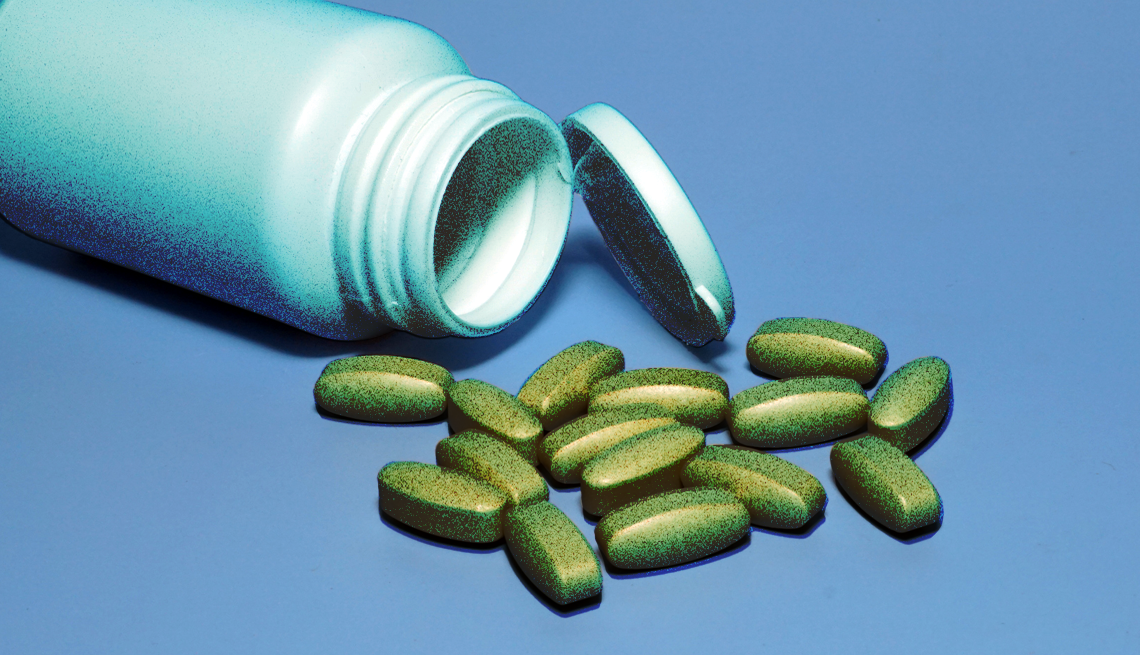Staying Fit


The U.S. dietary supplement market — the bottles of minerals, vitamins or herbs you see on store shelves — was estimated to be worth $53.5 billion in 2023 by Grand View Research, a California consulting company. But for the 3 out of 4 Americans who take supplements, consumers might not always get what they paid for. “People don’t realize that … dietary supplements are not tested for safety and efficacy by the FDA,” says Cydney McQueen, a clinical professor at the University of Missouri-Kansas City School of Pharmacy, who studies herbal and dietary supplements.
That doesn’t mean that all supplements are bad, but beware that scammers may sell products that don’t actually contain the promised ingredients, advertise unlikely miracles or enroll consumers in subscription plans without their consent.


AARP Labor Day Membership Sale
Join AARP for just $9 per year when you sign up for a 5-year term. Join now and get a FREE GIFT
Common supplement scams
Whether it comes in a pill, powder or gummy, here are some of the ways bad actors try to entice you to pay for their wares.
It mimics the name of a popular prescription medication. When a new prescription drug takes the world by storm with its dramatic results, such as Ozempic, supplement companies ride its coattails by giving their product a similar name and claiming it does the same thing (see our story on weight loss scams). By selling similar sounding products for a fraction of the price of the expensive prescription medication, consumers may believe they’ve lucked into a deal.
Marketers make extravagant claims. Supplements promising smoother skin, hormone replacement for women going through menopause or a cure for a chronic condition — think diabetes or Alzheimer’s — can be found on television, the internet and in magazines. These health product scams also often claim to have information that has been kept from consumers. “ ‘Secret knowledge that doctors don’t want you to know’ — that’s something I see way too often,” McQueen says. “They’re trying to grab onto this idea of hope for people who have conditions that there are [often] no cures for.”
They use fake endorsements. Enthusiastic testimonials from satisfied users, impressive results from clinical studies and ringing endorsements from medical specialists or celebrities — like Shark Tank gummies — may be fabricated by scammers to entice you to buy.






























































More on money
Scams and Fraud Protection Tips
Helping the consumer avoid identity theft, dating scams, tax fraud and moreBeware of Scams After a Hurricane or Other Natural Disaster
Crooks go after victims’ cash through fake charities and phony repair schemes
If You Donate to Relief Efforts for Ukrainians, Give Wisely
10 tips to vet charities and avoid scams